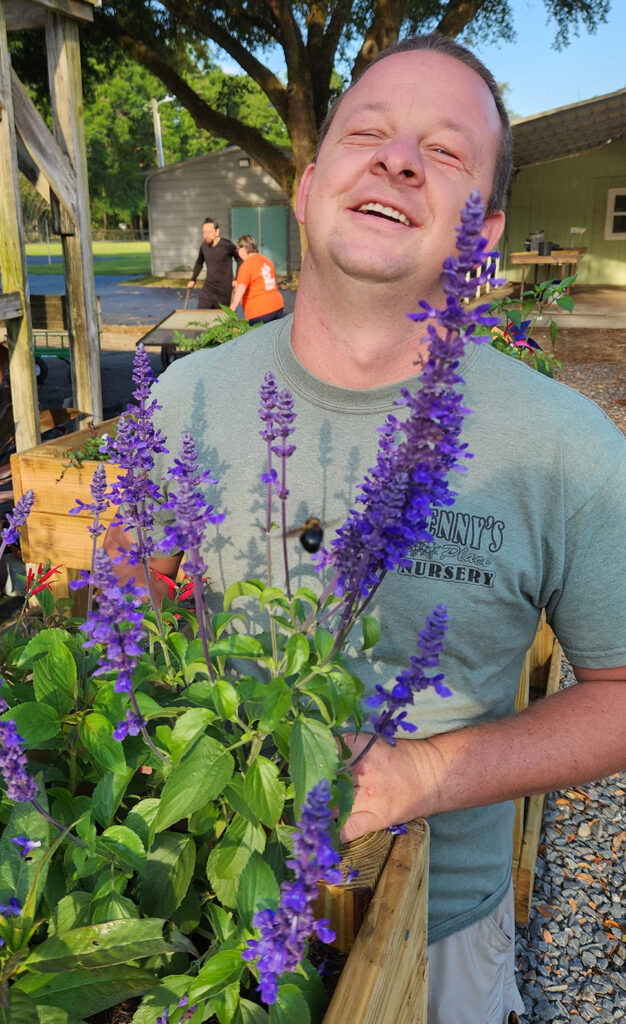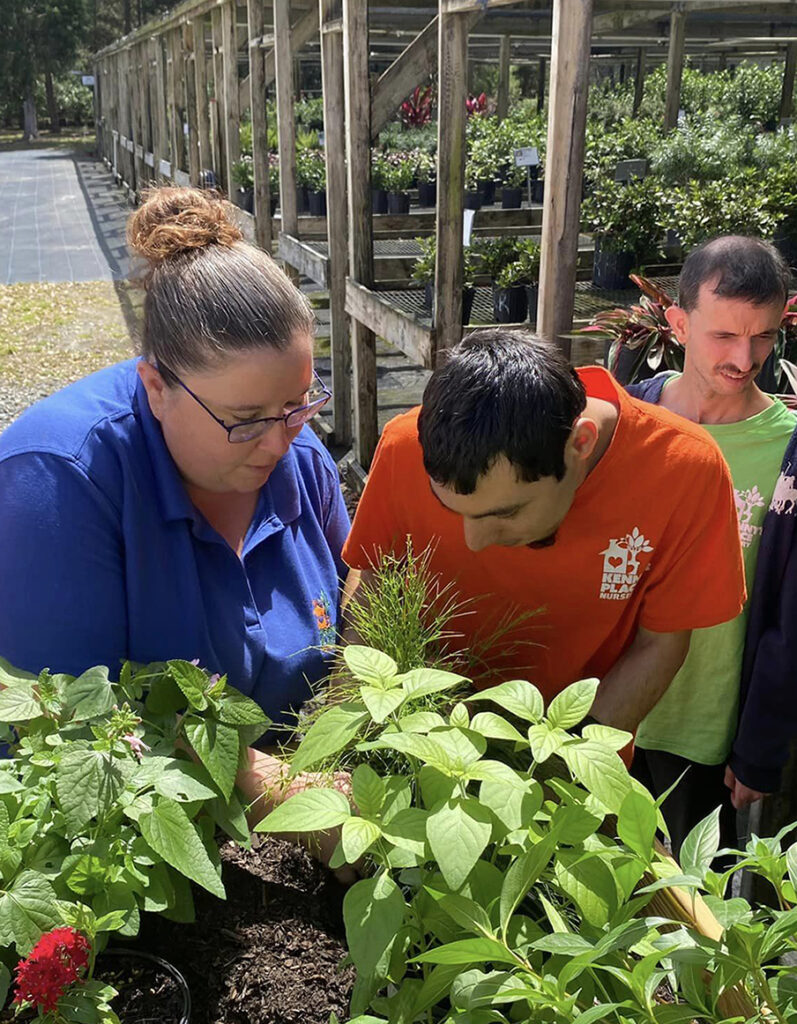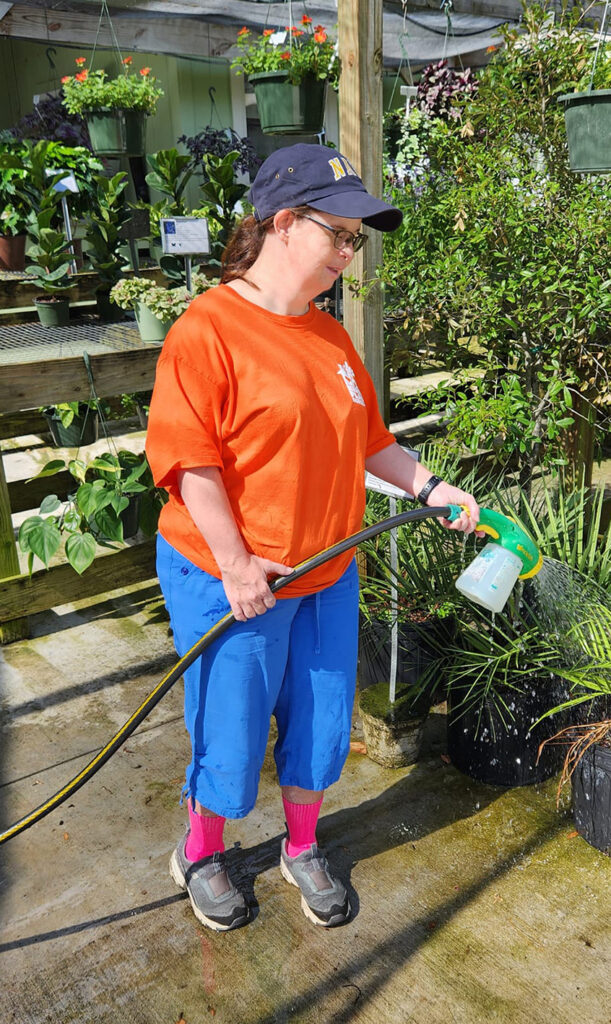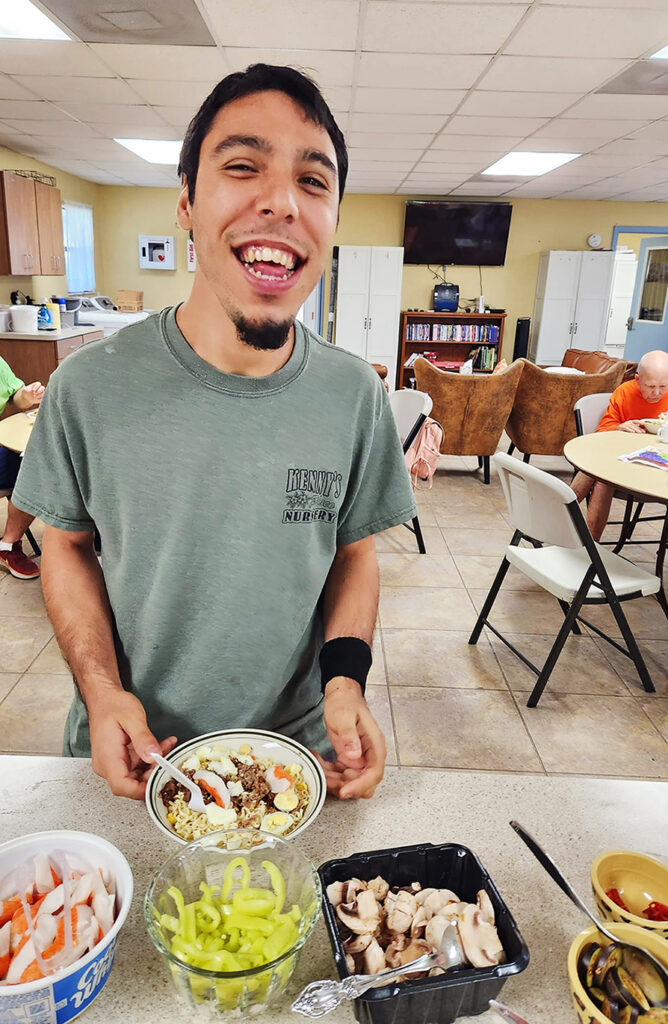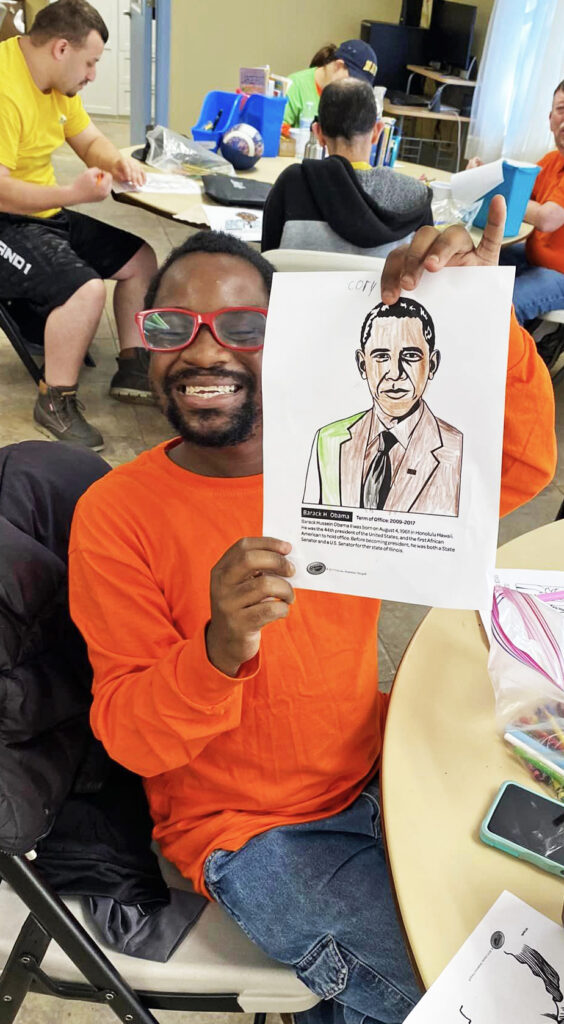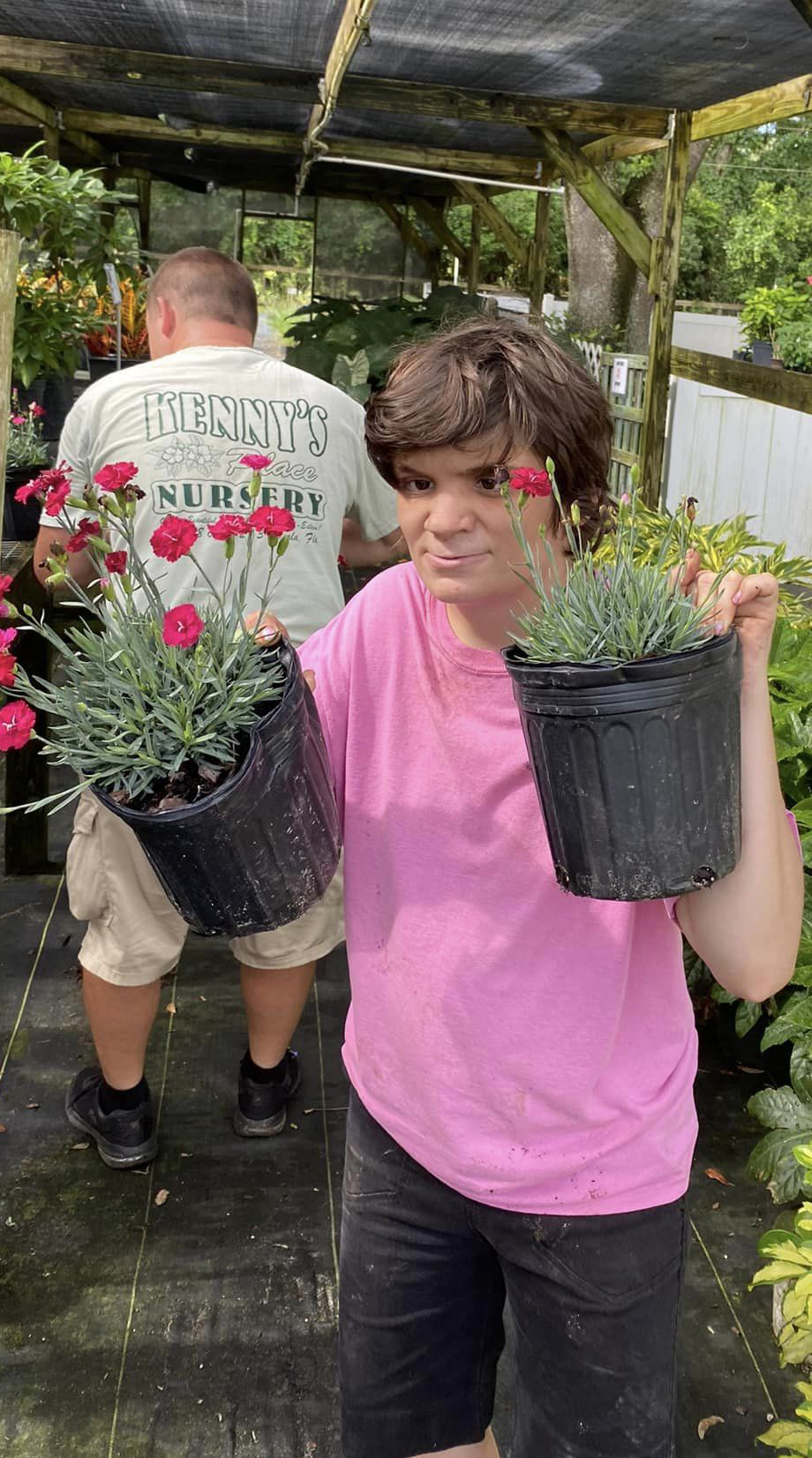With locally grown plants and a program to assist adults with special needs, this charming garden center will entice you with its greenery and you can do good by shopping there.
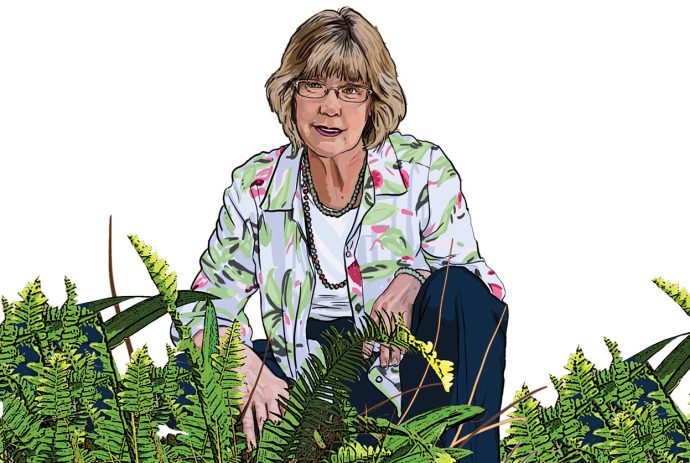
Down a tree-canopied road off US Highway 441, amidst residential parcels and small farms, a lush, green lot beckons to those of us who are plant people. Nestled on three acres of a former tree farm, Kenny’s Place Nursery, at 7677 SE 41st Court, in Santos, offers a greenhouse full of succulents and houseplants, a covered nursery of landscape plants and a selection of sun-loving outdoor plants. Several species of butterflies flit between the neatly arranged rows of plants that include herbs, heirloom vegetables (even an Everglades native tomato that puts out smaller-than-grape sized fruits), propagated and native plants.
And it’s not just a plant nursery.
“It’s a place for disabled folks to work, learn and feel productive,” says staffer Betsy Poore. The program is unique, she says, because Kenny’s Place doesn’t charge clients or their families for the Monday through Thursday care services. The adult clients, who have a range of disabilities, learn about plant care, of course, and the staff expands their learning into other subject areas, along with playing games and doing crafts. Poore mentions that their clients have a special enthusiasm about the study of other countries and enjoy sampling foods from those countries, which they do at the end of the study week. They also learn life skills like cooking, cleaning, doing laundry and socializing. It’s not an occupational therapy program so there’s no emphasis on necessarily developing job skills.
Program clients help load plants for customers and help maintain the hundreds of plants on-site. In April, the program received a proclamation recognizing their 30 years of “dedication and selfless service” to the community from the city of Ocala.
A team of three staffers—Poore, Matt Langley and Janie Kirk—loosely divide work into administrative tasks (Kirk), plant and site care (Langley) and the day care programs (Poore). They report to a board of directors.
Leo and Rosellas Wiechens began the program in the early ‘90s when they saw how working at his brother Kenny’s tree nursery provided solace and help for their developmentally disabled son Jerry. When Kenny passed in 1990, the family decided to formally open a program for others. Even though Leo and Rosellas Wiechens have since died, the family foundation continues to provide much of the funding for the nursery and its programs. Further funding comes from plant sales and donations.
Langley, who has been with the team for 18 years, is the plant “guru,” and talks easily about the varieties of plants available and their needs. He shares the story of a local couple who planted a ficus in their yard to memorialize their son and when they moved, they asked Langley and the nursery team to “babysit it.”
“They even come in to visit it once in a while,” he shares.
Years later, the ficus is more than 12 feet tall and full of healthy new growth and multiple branches.
Another long-time resident is an angel wing begonia that is nearly 5 feet tall and serves as the source for new plant propagation.
“That one is probably 20 years old; it was here before I started,” Langley notes.
A flashy specimen available for sale is a 3-foot-tall coffee plant that will indeed produce coffee beans if grown outside and protected from cold. Eventually, Langley admits with a laugh. “It’s fussy,” he adds. “It’s a better houseplant but won’t produce the beans indoors.”
Kirk produces most of the succulents available. Cold-hardy, drought-tolerant and natives make up the stock, both perennials and annuals. Vinca, lantana, Mexican heather, lorapetalum and more waft in the breeze of the shade house. Houseplant selections include caladiums, white butterfly, pothos, philodendrons of several varieties and ferns.
Langley estimates about half of the plants for sale are produced on-site by cuttings, seeds and divisions, and the rest are purchased from wholesalers.
Because many of the plants are propagated there, the prices for plants are lower than the chain big-box stores and the range of selections is amazing. Gardening supplies—pots, trowels and the like—are often donated and these are resold for low prices. Most of the plants are 1-gallon size, with a few 3-gallon sizes that make managing and moving the plants easier for staffers and customers. A fall nursery sale is slated for October.
“The integration of the clients and shoppers is best,” Langley says. “This is far from the old-fashioned institutions” that segregated developmentally and mentally disabled people from society.
Instead, under shady trees and in humid growing houses, the plant nursery and the client care program bring people—and plants—together. OS
Learn more at kennysplacemarion.com or fb.com/kennysplace.marion
A native Floridian and lifelong gardener, Belea spends her time off fostering cats and collecting caladiums. You can send gardening questions or column suggestions to her at belea@magnoliamediaco.com
